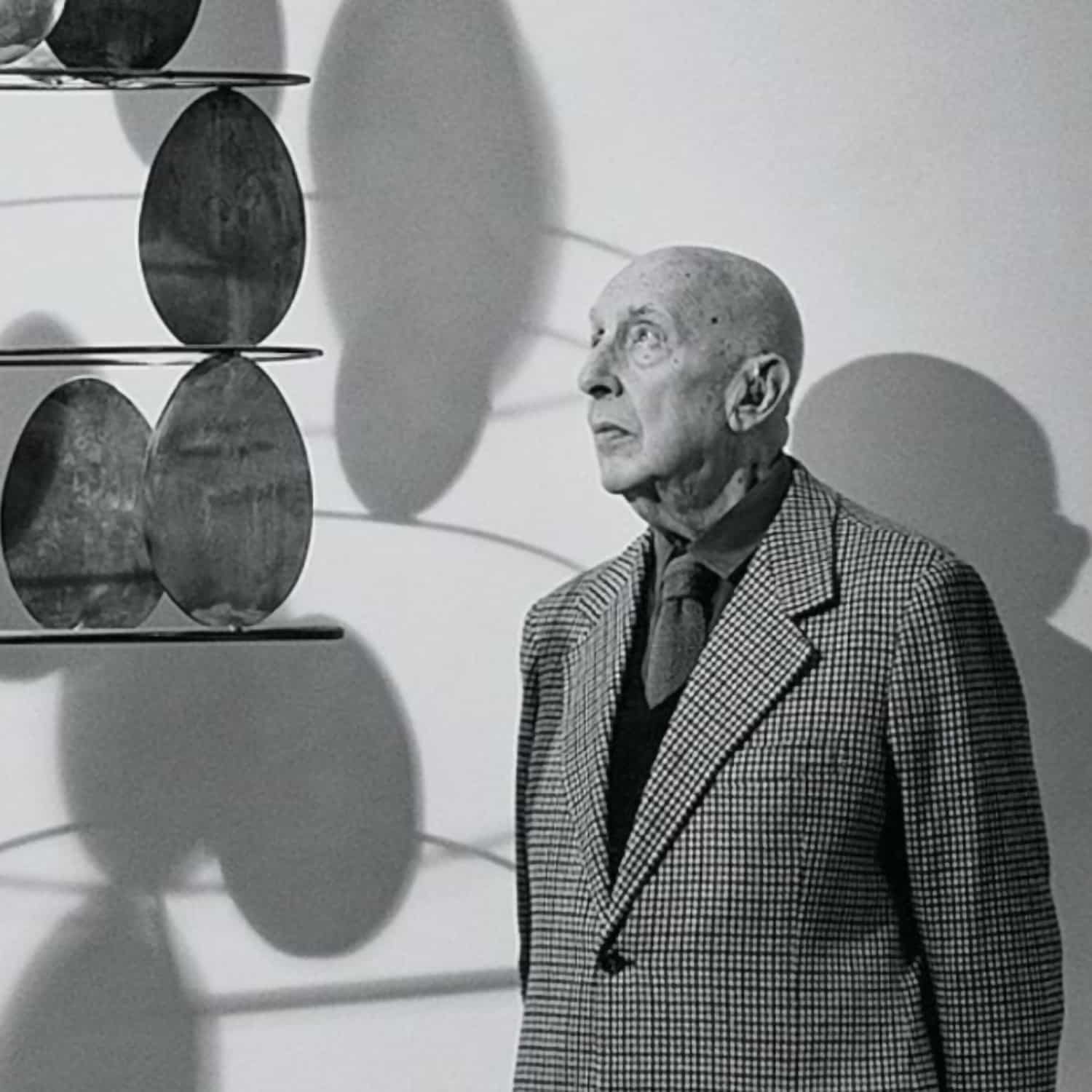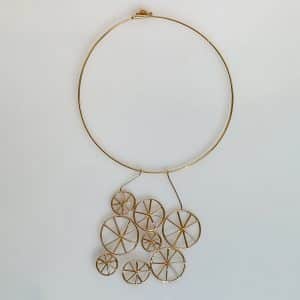Fausto Melotti
He enrolled in the Faculty of Physics and Mathematics at the University of Pisa, which he continued at the Milan Polytechnic, where he graduated in electrical engineering. In the same years he obtained a piano diploma and studied sculpture in Turin, Italy, with Pietro Canonica. In 1928 he enrolled at the Brera Academy in Milan.
In 1935 he joined the “Abstraction-Création” movement, founded in Paris in 1931, and in the same year together with Milanese abstractionists he participated in the first collective of abstract art in the studio of Casorati and Paolucci in Turin and exhibited in Milan at Il Milione.
His first exhibition was not much of a success in Italy, but attracted attention in France and Switzerland, where he won the La Sarraz International Prize in ’37.
From 1941 to 1943 he lived in Rome, where he participated in Figini and Pollini’s project for the Palace of the Armed Forces and in the meantime made drawings, paintings and composed poetry.
After the war he devoted himself to ceramics and achieved a very high quality recognized by the numerous awards he received, including the Grand Prize of the Triennale in 1951, the Prague Gold Medal and the Munich Gold Medal.
In 1967 he exhibited again in Milan with newly inspired sculptures. From here begins a series of exhibitions in Italy and abroad that lead him to success and allow the public to become acquainted with his work. In 1974 Adelphi published a collection of writings and poems entitled “Linee “which won the Diano Marina Prize in 1975. In 1979 a solo anthological exhibition was presented at Palazzo Reale in Milan, and in 1981 Florence dedicated a major retrospective to him at Forte Belvedere.
Melotti died in Milan on June 22, 1986, and in the same month the 42nd Venice Biennale of Visual Arts awarded him the Leone d’oro alla memoria.


